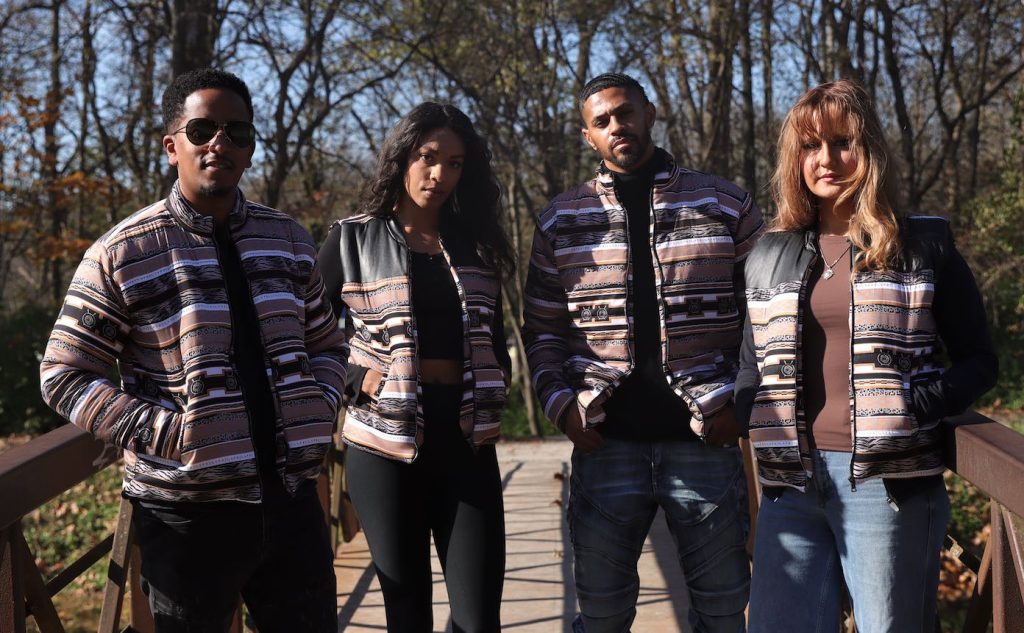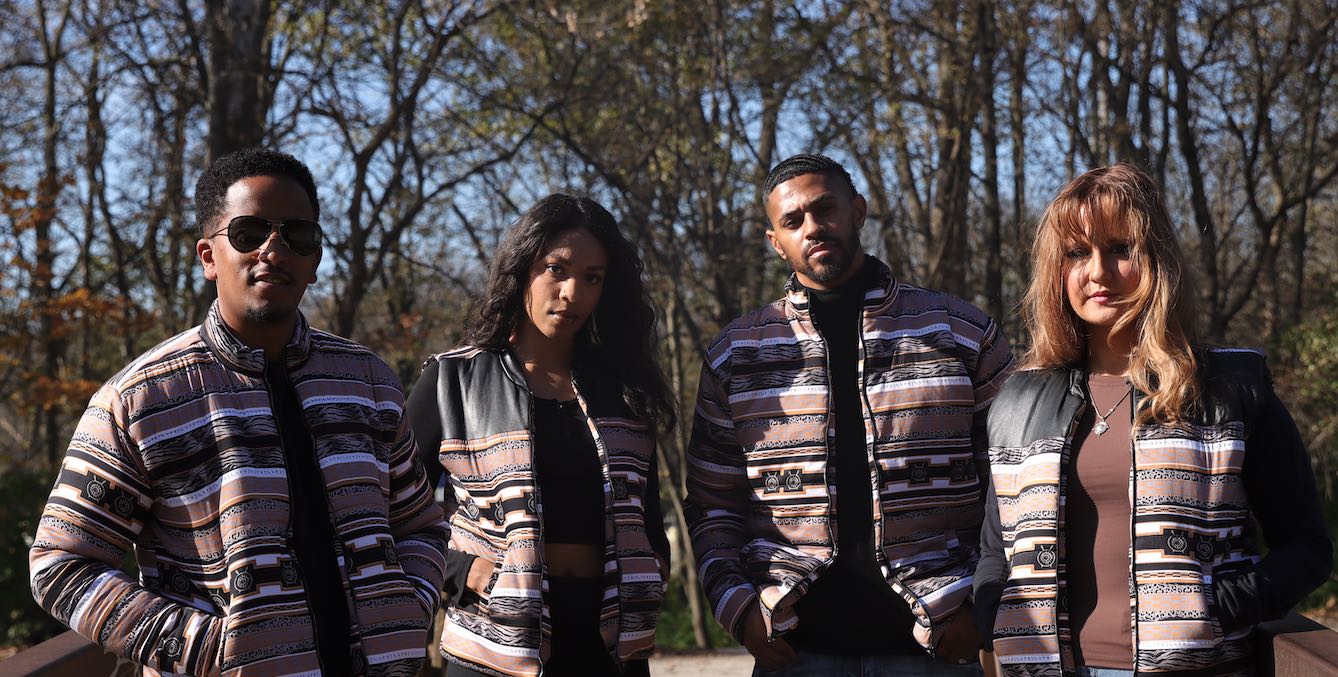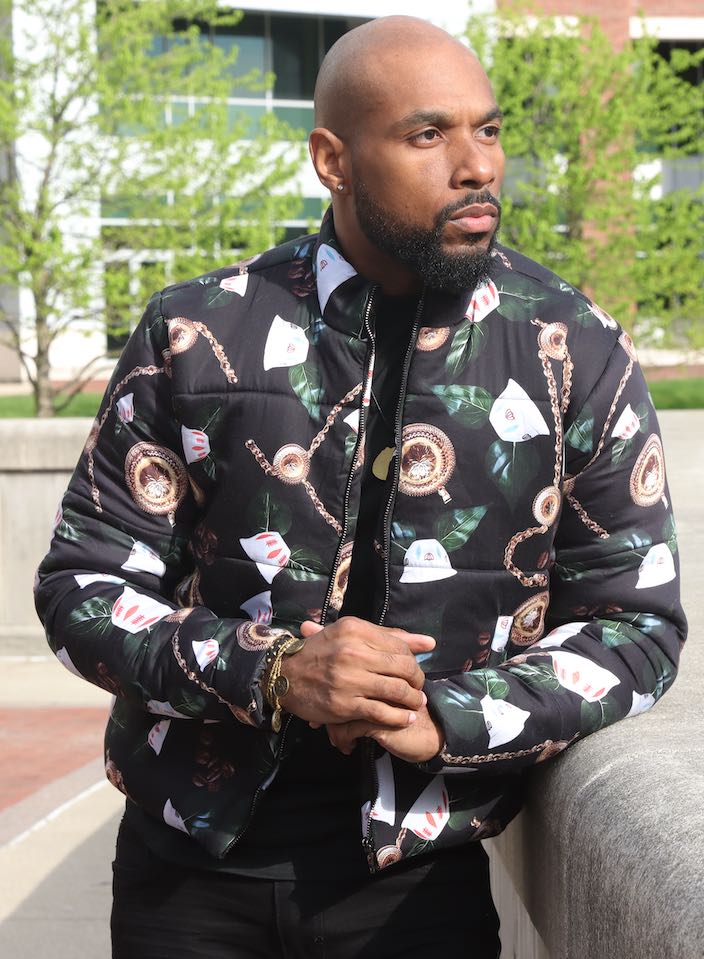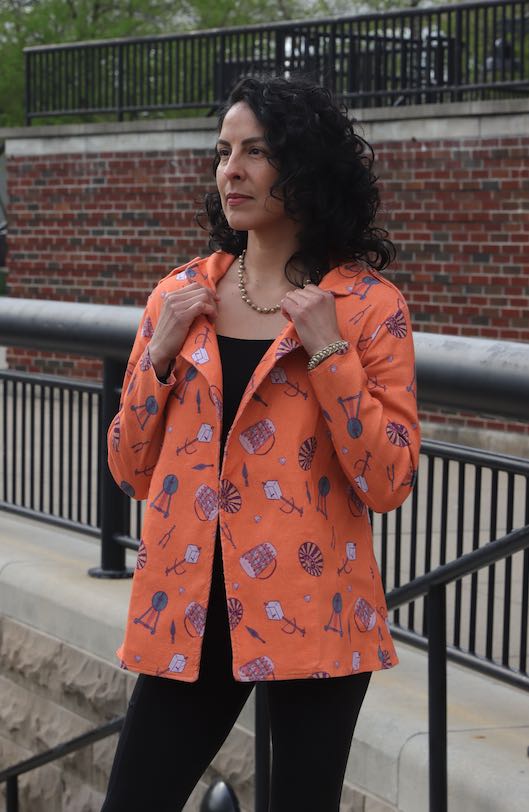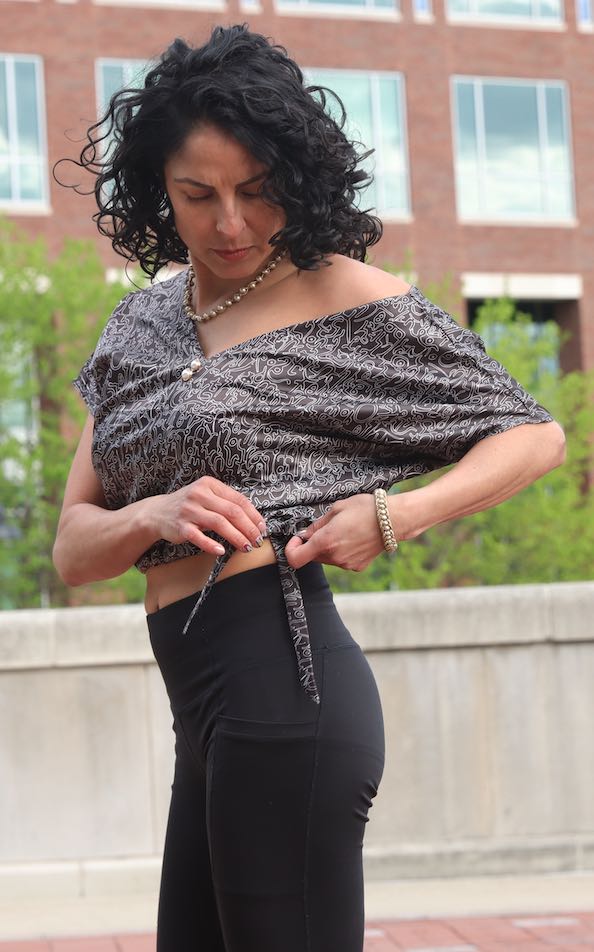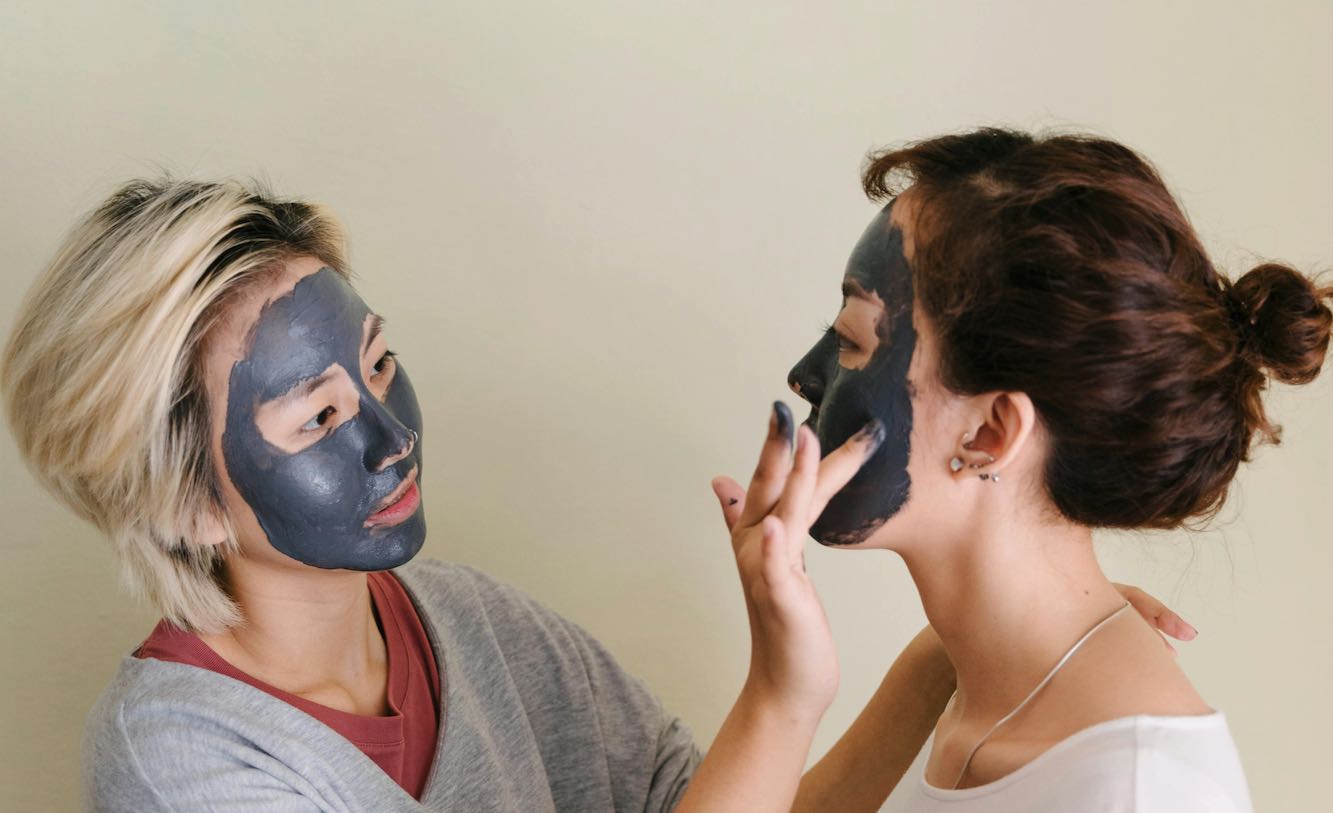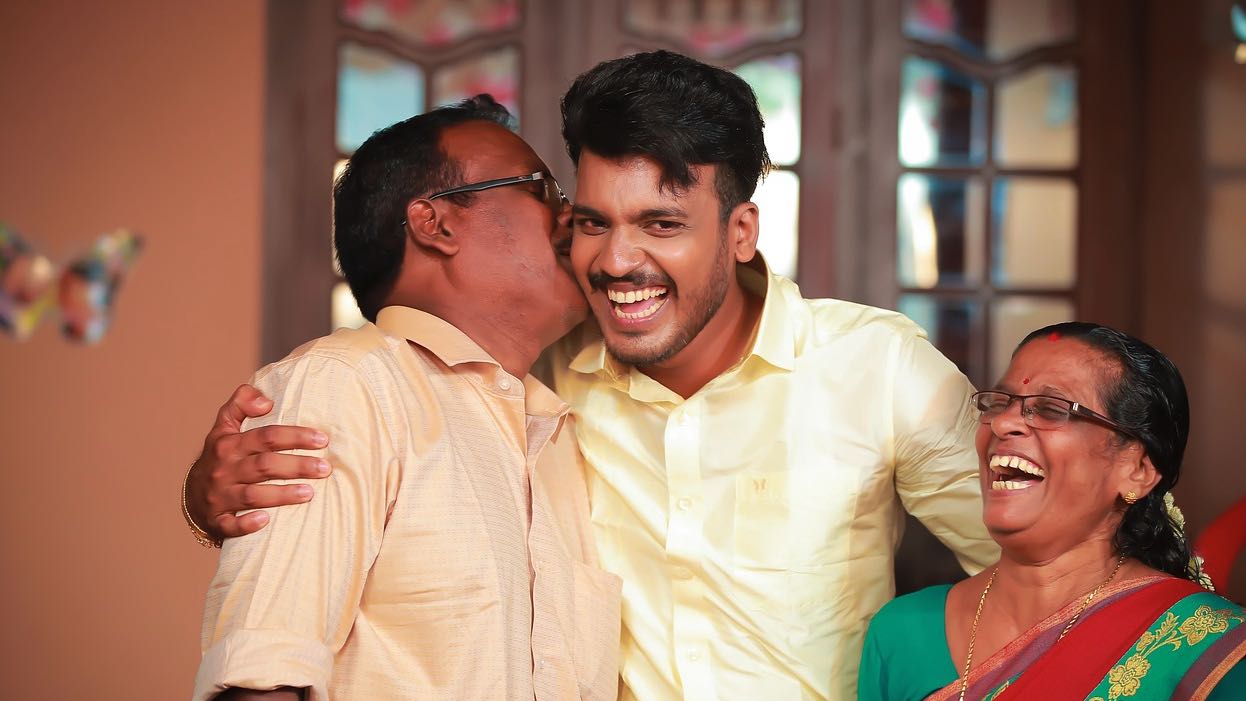For Dagi and Elise Tegegne, integrating their Ethiopian and U.S. cultures while raising a son and starting a fashion business has been a “journey.”
Elise is a native of Indianapolis, Ind., U.S.A., and taught French in Addis Ababa, Ethiopia, where she met her husband Dagmawi, who goes by “Dagi.” Elise holds an MFA in creative writing from Seattle Pacific University and has published articles and essays in various publications in addition to a blog series “Experiments in Inefficiency,” which wrestles with what it means to walk a Jesus-paced life.
Her first book, “In Praise of Houseflies: Meditations on the Gifts in Everyday Quandaries,” was published in August 2025.
“I think something that I’ve had to learn personally is that my husband’s not crazy,” she says. “The way that he thinks and his values are rooted in a deep, sacred tradition and upbringing that I’ve had to grow and learn to respect.”
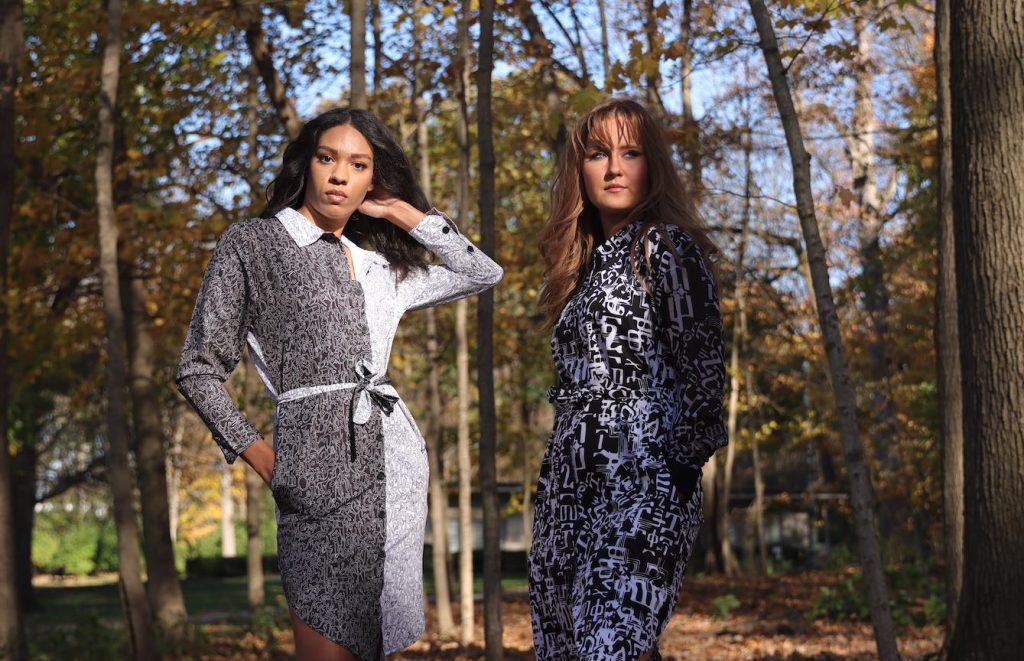
While they both come from different places, “if we can learn from each other, we can kind of find a balance that’s sweet and good,” she adds.
Dagi was born and raised in Ethiopia, where he met his wife while she was on a mission there in 2023. He founded ADWA Fashion to showcase Ethiopian artisanal excellence inspired by the unique, high quality-fashion jewelry and leather goods crafted by local artisans. He currently works as a marketing manager and is driven to uplift Ethiopian creators and share their work with the world.
GROWING UP IN A TRANSIENT ENVIRONMENT
As for education, Dagi grew up attending an international school in Addis Ababa where many of his classmates would only be there for a few years due to their parents’ jobs and would then leave.
The population he grew up with was “very transient,” according to Dagi.
“Having grown up in that environment, you kind of get used to it and try to make the most of it,” he says.
Interacting with a transient group of people continued in his post-collegiate life when he worked for an international church, which is how he met Elise.
“On any given Sunday, we had close to 52 nations that were represented there,” he says. “So we are used to it being so transient — people would come and go on assignments, missions, whatever it may be.”
Part of the beauty of Ethiopian culture is “we are hospitable,” Dagi adds. “We don’t count the days you’ll be with us — we’re just happy that you’re here. So however long that will be, we will invest in you. We will pour out love and welcome you. I think the blend between our culture and having grown up in that environment, it helped with the transient nature of the community.”
WANDERLUST
As for Elise, who was born in the U.S. and majored in French and English in college, she always had it in her heart to travel.
“I had this wanderlust in my 20s and I wanted to use my French abroad in some way,” she says.
While Elize had her heart set on teaching English in France, and thought “for sure” that she would get that opportunity, it fell through.
That setback proved to be serendipitous, though. One of her French professors told her about a school in Addis Ababa that needed a French teacher.
We don’t count the days you’ll be with us — we’re just happy that you’re here.
“I was disappointed because Ethiopia is a primarily English-speaking country after Amharic. But that’s how God led and so Ethiopia was my first time, my first experience on the African continent,” according to Elize.
Moving to Ethiopia was a big culture shock for her, “but one of the best experiences of my life.”
Ethiopia’s welcoming culture helped make the transition somewhat easy, according to Elise. Additionally, the large international church community was equally convivial.
But that didn’t mean the move wasn’t challenging.
“Coming into a big city was difficult, with the traffic and the noise that I wasn’t used to. And then teaching abroad without family, without the support of family, those were challenges as well. But the Ethiopian culture itself I really loved,” she says.
THE ‘JOURNEY’ OF SETTLING INTO A NEW CULTURE
Having lived together in the U.S. for over eight years, getting settled into a new culture has been a “journey” for Dagi.
“It’s been an adjustment,” he says. “Assimilating was not hard because I grew up around a lot of internationals, so that part wasn’t difficult. Having the language helped a lot and then settling in into the work environment helped a lot with that.”
The two biggest challenges for Dagi have been adjusting to U.S. midwestern weather and finding a community.
“Coming from a very communal society where just like the Cheers soundtrack, ‘where everybody knows my name,’ it’s just easier, right?” he says. Back in Ethiopia, “people knew me, even if they didn’t know me, they looked like me.”
Additionally, in Ethiopia the community and families were very tight-knit, according to Dagi.
“It’s like you are in each other’s lives consistently and it’s not like a big deal or there’s not a lot of boundaries,” he says. “So moving here, that was an adjustment and it still is. People have a lot of boundaries. I’m thankful we’ve found some community, but that’s been the biggest challenge.”
While their “official” wedding took place in the U.S., the couple had a smaller ceremony in Ethiopia for Dagi’s family as well as the church community that they had been a part of.
“I think it’s just easier to take a lesson or the lead from the wife or the wife-to-be, because she would have thought about it way longer than I have in terms of growing up and different things,” Dagi says. “Having her be happy for the day was more important, so the very fact that we were able to gather with the people that we loved, our friends and family in Ethiopia as well, that for me was enough.”
Assimilating was not hard because I grew up around a lot of internationals, so that part wasn’t difficult.
Having the official wedding in the U.S. doesn’t mean they didn’t incorporate elements of Ethiopian culture into the ceremony.
“We had a couple of songs that we sang in Amharic, and then we had a tradition of kissing the knees of your elders, your parents, and in my case, and well in Dagi’s case, his parents weren’t able to come, so his aunt and uncle were there. And for me, my parents and my grandpa,” Elise says.
ETHIOPIAN FASHION
After living in Indiana for several years, every now and then Dagi would think about how great it would be to have clothing from his home country with a contemporary design that he could wear every day. That’s what led him to start ADWA Fashion.
“We have a rich history of textiles in Ethiopia, but oftentimes when I went back home, it’s been more of the usual traditional attire that I would find, but when I wear them, it’s usually just for holidays. You don’t wear them in everyday different things,” he says.
It wasn’t until he saw a friend of his wearing Ethiopian clothing with a contemporary design that led him to look for more of just that on a subsequent trip back home, which he says was “an eye-opening experience.”
“I was excited to see the blooming industry, the fashion industry, and there were a lot of great artisans that were starting out, blending the rich traditional tapestry and history of Ethiopian textile with contemporary ways,” he says.
The more Dagi looked into it, the more amazed he became.
“People need to see these [fashions], even people beyond Ethiopia, because these are quality, they’re oftentimes handmade and oftentimes they employ vulnerable people, especially vulnerable women,” he says.
Consequently, Dagi set up an e-commerce platform where he would handpick vendors that not only create ethical products sustainably and employ vulnerable people, “but also they are brilliant and their designs, they’re unique, they’re creative and they’re original. They blend the history and the culture with modern thoughts.”
That led to him buying their products, bringing them to the U.S. and marketing them online, followed by doing pop-up and vending events to get the word out.
TELLING STORIES
The reception has been “incredible,” according to Dagi.
“We’ve been in the local news and different things, and so it’s just been wonderful to share that story because I’m passionate about what I’m doing, not because it’s just a business, but it has a story behind it. It has a whole people behind it.”
One thing about marketing these artisans is that Dagi loves telling their stories.
There were a lot of great artisans that were starting out, blending the rich traditional tapestry and history of Ethiopian textile with contemporary ways.
“One thing that I don’t do is I don’t rebrand the clothes,” he says. “I always keep the vendor’s name and when I share the story, I share about who we are, what we are doing, and then who this artist is so like what I’m wearing right now and what my wife is wearing, it has different meanings.”
Some of the clothing Dagi markets is derived from ancient, traditional drawings called “Sabawi.”
“You would see this in ancient caves and paintings,” he explains. “This is how they would do icons and they would tell church stories through these kinds of drawings and paintings. That is not common in the rest of the world.”
Other garments sport Ethiopian tattoo designs inspired by the designer’s late grandmother.
“She captured it to immortalize it and then turned it into beautiful fashion,” he says.
Consequently for Dagi, ADWA Fashion isn’t “just another clothing brand. It’s not just textile for textile’s sake. You’re wearing stories and histories and traditions. Ancient tradition.”
